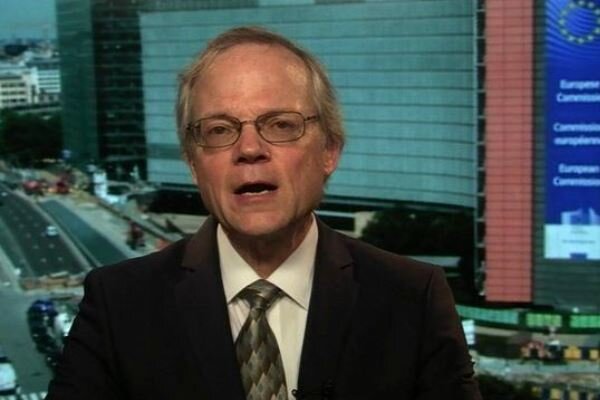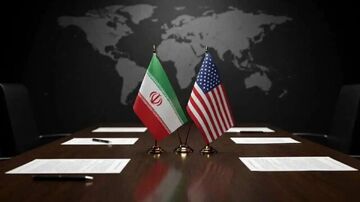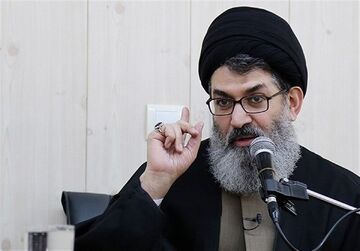TEHRAN(Bazaar) - Mark Fitzpatrick, associate fellow and former executive director of IISS–Americas, says: US relations with Saudi Arabia will change under Biden and Biden will end its support for Saudi Arabia in war with Yemen.
Following is the full text of the exclusive interview of Bazaar with Mark Fitzpatrick.
Bazaar: Some believe that given Biden's cabinet, which makes up many of the Obama-era nuclear negotiating team with Iran, we will see sweeping changes in US relations with Iran. What is your assessment?
Fitzpatrick: President Biden seeks a productive relationship with Iran, one based on mutual respect and aimed at peacefully resolving differences. America's national interests have not changed with the change of administration. The United States still aims to ensure that Iran never produces nuclear weapons. Among other on-going US goals, the Biden Administration wants Iran to end military interference in neighboring countries, stop supporting groups that engage in acts of terrorism, accept limits on its ballistic missiles, release US citizens under detention, and respect human rights. But unlike the previous administration, the Biden team does not promote regime change in Iran. It knows that it is up to Iranian citizens to choose their leaders and their form of government.
Bazaar: According to some news, the lifting of sanctions on Iran's oil was supposed to be in Biden's initial executive order, and this issue has been removed from the agenda. This news was announced by Bloomberg. What do you think is the reason for this?
Fitzpatrick: I do not know anybody who thought that Biden would lift sanctions on Iranian oil sales the first day. This is not among his top priorities, and it would have been politically unwise to take such a step before consulting with members of Congress and with partner countries that would be most affected. Bloomberg treated as big news the statement by Biden's chief of staff Ron Klain that the administration would be conducting consultations before making decisions on Iran. There is nothing surprising about this statement. Biden naturally wants to avoid the accusation leveled at President Obama that he did not consult with partners before negotiating with Iran. That accusation was not accurate, but the claim stuck. To have any chance of bipartisan by-in, the Biden teams needs to make a public and credible effort at listening to the views of those states and members of Congress who are skeptical about re-engaging with Iran.
Bazaar: Antony Blinken (President Joe Biden nominee for the position of Secretary of State) said in a Senate confirmation session before the inauguration that the president-elect (Biden) believes that if Iran returns to the agreement, we will return to the agreement, but on this issue, along with our allies. Once again, we will use them as a platform to reach a longer and stronger agreement and address other issues, especially the missile issue and Iran's destabilizing activities. How do you think the JCPOA relates to Iran's missile issues and regional policy?
Fitzpatrick: Anthony Blinken's testimony confirmed the policy that Joe Biden laid out before the election. In a September 13 commentary on CNN.com, candidate Biden pledged to return to the nuclear deal if Iran restored its full compliance, and that he would seek to use a restored JCPOA as a basis for engaging Iran on other issues of concern. He did not place conditions on action to restore the nuclear deal. The sequencing and timing was left unspecified. I believe a "compliance for compliance" return to the deal will have to be worked out so that it happens simultaneously. Meanwhile, talks can begin on other issues of concern. The nuclear issue is the priority because it impinges most directly on US national security.
Bazaar: What will be Biden's approach to the Persian Gulf region, and especially to Saudi Arabia? To what extent will US relations with Saudi and Israel be affected by US-Iranian relations?
Fitzpatrick: The Biden Administration's overall policy in the Middle East will emerge following a review, but clearly relations with Saudi Arabia will change the most. Biden will follow through with his pledge to end support for Saudi Arabia's war in Yemen. He will be more cautious about arms sales, will not condone Saudi human rights abuses, and will press for justice over the assassination of Jamal Khashoggi. Relations with Israel are based on a firm bedrock of close ties over many years and will not change dramatically, although the Biden Administration will be oppose unfettered expansion of Israeli settlements in the West Bank. Mutual concerns about Iran's nuclear and missile programs and its support for armed non-state actors in many countries will continue to be a key factor in US relations with many countries in the region.
















نظر شما